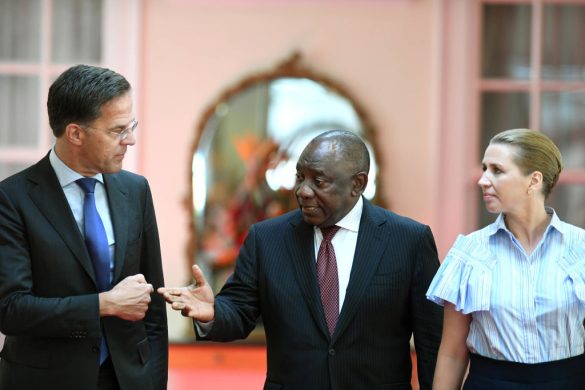En ny rapport fra FN’s Miljøprogram (UNEP) viser hvordan ulovlig handel med menneskeaber har forbindelse til internationale kriminelle netværk. Rapporten slår fast, at 3.000 aber forsvinder fra naturen hvert år på grund af illegal handel med bl.a. chimpanser, gorillaer og orangutanger. BANGKOK, 4 March 2013 – The illegal trade that sees almost 3.000 live great apes lost from the forests of Africa and Southeast Asia each year is increasingly impacting wild populations as links to organized crime grow stronger. “Stolen Apes: The Illicit Trade in Chimpanzees, Gorillas, Bonobos and Orangutans” is the first report to analyze the scale and scope (omfang) of the illegal trade and highlights the growing links to sophisticated trans-boundary (grænsekrydsende) crime networks, which law enforcement networks are struggling to contain. “Stolen Apes”, which was produced by the United Nations Environment Programme (UNEP) through the Great Apes Survival Partnership (GRASP), estimates that a minimum of 22.218 great apes have been lost from the wild since 2005, either sold, killed during the hunt, or dying in captivity (fangenskab), with chimpanzees comprising 64 per cent of that number. The report examines confiscation records, international trade databases, law enforcement reports, and arrival rates from sanctuaries (reservater) and rehabilitation centers between 2005 and 2011. “Stolen Apes” says that each great ape confiscated or confirmed in the illegal trade represents many more that died either during the capture or the trafficking process. UNEP: Vi skal være på vagt Over the past seven years, a minimum of 643 chimpanzees, 48 bonobos (dværg-chimpanser), 98 gorillas and 1.019 orangutans are documented to have been captured from the wild for illegal trade. These figures are just the tip of the iceberg, and extrapolating (uddrage) from this research the report estimates that at least 2.972 great apes are lost from the wild each year. “The taking of great apes from the wild is not new; it has gone on for well over a century,” said Achim Steiner, UNEP Executive Director, adding: “But the current scale outlined in this report underlines how important it is that the international community and the organizations responsible for conserving endangered species remain vigilant (årvågen), keeping a step ahead of those seeking to profit from such illegal activities.” All great apes are endangered and protected under the Convention on International Trade in Endangered Species (CITES) as Appendix I animals. Ulovlig handel ikke længere kun et biprodukt af andre trusler Yet “Stolen Apes” reveals that the illegal trade has shifted from being a by-product of traditional conservation threats such as deforestation (afskovning), mining and bush-meat hunting (jagt på truede arter) to a more sophisticated business driven by demand from international markets. These markets include the tourist entertainment industry, disreputable (berygtede) zoos, and wealthy individuals who want exotic pets as status symbols. Great apes are used to attract tourists to entertainment facilities such as amusement parks (forlystelsesparker) and circuses. They are even used in tourist photo sessions on Mediterranean beaches and boxing matches in Asian safari parks. Læs hele pressemeddelelsen her: http://unep.org/newscentre/Default.aspx?DocumentID=2704&ArticleID=9435&l=en Begynd ved: “Since 2007, standing orders from zoos…”
Omfattende ulovlig handel truer verdens menneskeaber














